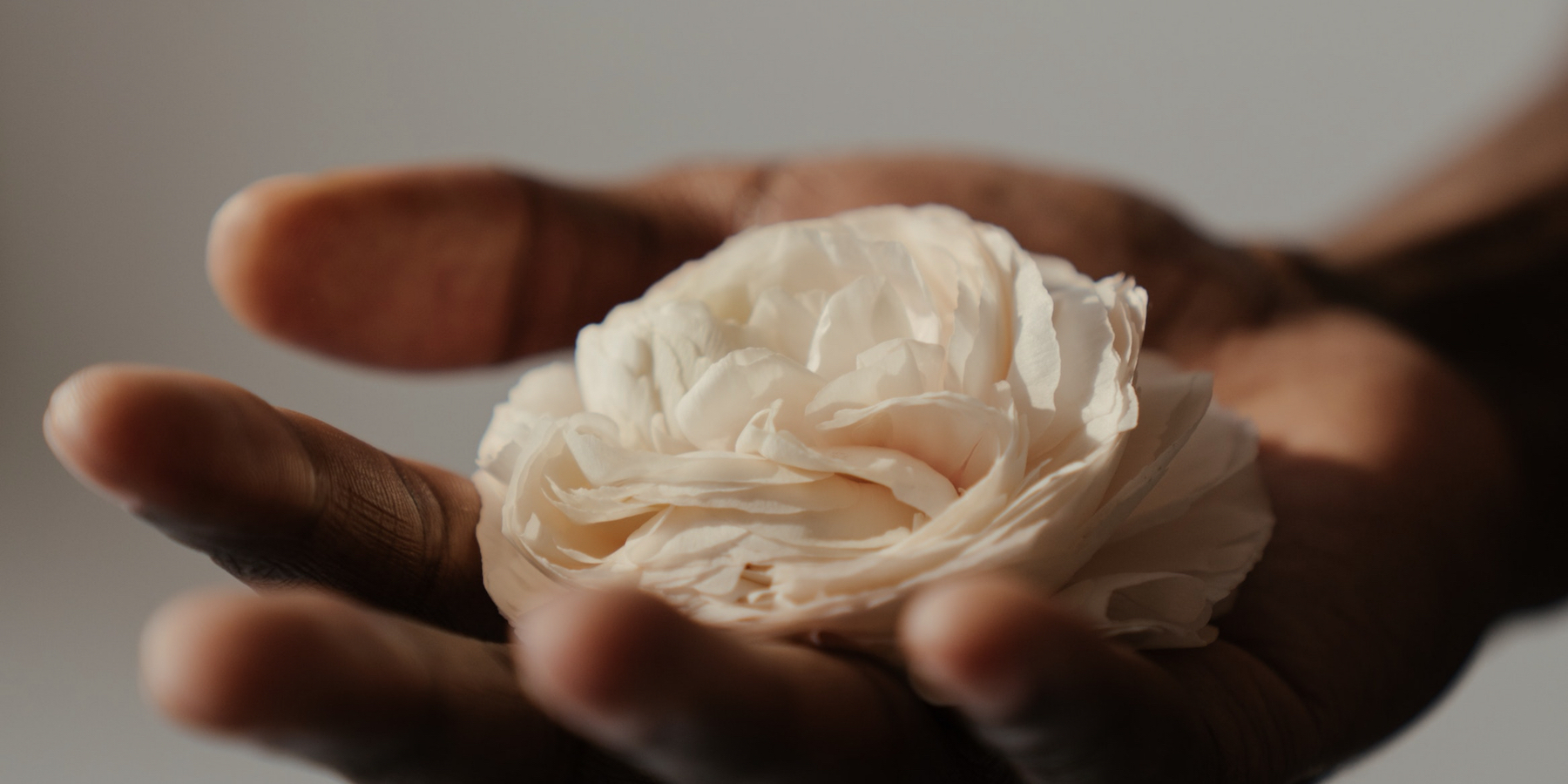I stopped using Facebook regularly about a month ago. I already knew the algorithms that decide which content will show up on the news feed were designed to engage the same parts of our brains that get us hooked on everything from sugar to heroin. That hadn’t been enough to motivate me to get Facebook sober though. Then I watched the new Netflix documentary, “The Social Dilemma,” which outlines how social media platforms were developed, monetized, and how they have inadvertently (and very advertently) become a mechanism for increased polarization and division. Something clicked for me that I hadn’t fully understood when I was considering my Facebook use as merely an addictive time suck – social media was making it hard for me to care about people. (Read more about phone-induces anxiety here.)
The Urgency To Cut Ourselved Off
Brené Brown has a great quote that resonates a little too deeply for me – she said in a talk once that she loves humanity but really struggles with humans. As a therapist, admitting you don’t like a lot of people is understandably alarming (though the people I like the most are my clients).
What I’ve noticed in my therapy clients and in myself is a growing urgency to cut ourselves off from anyone who doesn’t share our political (read: moral) views. The idea that the personal is political and the political is personal has gone a long way to inspire action, to help white people in particular overcome the lethargic inertia of privilege and commit ourselves more deeply to causes of equity and justice. In a social media context, though, we encounter messages that both affirm our sense of righteousness to be engaged with our chosen causes, and that cast anyone who is not engaged in the same activities as degenerate, cold-hearted, and evil.
Now it’s not enough to write senators, go to protests, read anti-racist books—if we aren’t also publicly denouncing the people (not just the behavior) who aren’t invested in the same world views, we can feel guilt and shame for not being radical enough. When we interact with family and friends who post things like “All lives matter,” or who ask for opinions about which Halloween costume is better, Sexy Pocahontas or Sexy Harriett Tubman, we become filled with contempt, have urges to lash out, un-friend, or belittle, none of which does anything to help the other person wake up or to further the cause of justice.
Why Rage Should Not Be Our Guide
In all our work to get more woke, many of us are missing a critical point: When we are guided by rage and hate, we become part of the problem no matter which side we are on.
Before we move on – how mad are you, right now, that I’m even hinting at your contempt being a problem? How many thoughts have you already had about how this is just the sort of whitewashed Rodney King bullshit that got us into this mess. Nobody has time for your Care Bear Stare activism, Doctor Creasman. If you even are a real doctor…
Here’s what happens next if you close your browser now and go about your day: Your blood pressure is up, you’re ruminating about how stupid people are that they don’t recognize the harm caused by their ignorance of privilege, you mindlessly scroll through Instagram and see your uncle just posted another picture of himself in his MAGA hat holding his AR-15, you unfollow him, your jaw tightens even more. Then your 5-year old drops his cereal bowl. Now you’re so far gone in your anger that you have a full blown temper tantrum about, you guessed it: Spilled. Milk. Now the ripple effects of your untended pain are a source of pain for someone far less equipped to manage emotional discomfort: your child.
Read more: In another article, Dr. Candice Creasman explores the concept of being a good-enough mother and how mindfulness helps her to feel more self-acceptance and let go of perfectionism.
Our Basic Goodness
When we are inundated with messages of fear, anger, contempt, and bitterness, we dampen our awareness of our basic goodness. Then our outrage stops being a useful tool for alerting us to what needs our attention, and becomes the lens through which we experience our lives and each other. We absolutely need to be able to feel grief, hopelessness, and anger when we see our global family members being harmed, but allowing any of these painful emotions to be in the driver’s seat of our choices will create more problems than it solves.
Our work is to make room for all the painful emotions that naturally arise when we encounter our own or other’s suffering and remember that all the players in the situation are inherently compassionate and good. Then our negative emotion gets to serve its intended purpose—to motivate and activate us to take care of ourselves, and each other—rather than turning us into seek-and-destroy automatons. If it’s a bridge too far to realize that even our anti-mask neighbor is inherently compassionate; that’s our cue to nurture our own anger and resentment before we do anything else.
There is so much room in this compassionate approach for what the late John Lewis described as “good trouble.” The more we tend to our feelings of rage and sadness before we mindlessly act on them, the greater our ability to discern when drastic action is necessary. Compassion isn’t about being nice, it’s about being kind. If I see my two-year old darting toward the highway, I am going to yank his ass up and tell him “NO!” I’m not going to sweetly ask him to “please stop running, Snookums.” The kind thing to do is to keep him from getting run over, and the most useful expression of that kindness needs to be firm and intense. We can protest, call out racism, tear down some statues, and otherwise engage a full range of activities to serve social justice from a place of compassion. Our outrage can be fuel for the bus, while compassion determines where the bus is going.
Read more: Kate James explains how to find inner peace by unhooking from drama in life.
Comforting Ourselves Through Pain
Rumi wrote,
“Your task is not to seek for love, but merely to seek and find all the barriers within yourself that you have built against it.”
Like most popular quotes that I really need to hear, I found this annoying for many years. Then I started to check out all the times I felt separate from people, alone, resentful, and victimized and realized that a common denominator was my own inability to comfort myself through pain.
I’ve begun to embrace how my own trauma responses have impeded my ability to feel loving and loved. Most recently, I’ve seen how my negative emotional load is dramatically impacted by social media consumption and how I can access so much more compassion and peace if I’m not inundating myself with useless negativity. Interestingly, the less I consume raw emotional content, the more open I am to confronting ignorance when I hear it rather than reflexively disengaging from people acting from their own anger and fear. I’m more aware now of how so many of the choices I’ve made in pain have obscured my connection to others, growing my condescension and contempt. Many of my efforts to be a force of good have been overshadowed, swallowed up in the wake of my unclaimed anger.
If I could recommend two strategies for becoming a more effective agent of change:
- Get off social media – even if it’s just for one day a week. Reclaim ownership of your brain’s reward center, and give yourself an opportunity to detox from raw negative emotion.
- When you’re feeling intense emotional discomfort, go inside before you go outside. Learn how to notice emotions and tend to them before reacting to the people and situations around you.
Want some tools for going inside? Find a Dialectical Behavior Therapist, learn loving-kindness meditation (Sharon Salzberg is a great resource), take my course on Insight Timer, or read Love and Rage by Lama Rod Owens.
You can also turn inside with these guided meditations by Dr. Candice Creasman:
- Heart Awareness: Connecting With Feeling Dr. Candice Creasman 10:00
- Turn Stress to Compassion Dr. Candice Creasman 2:57
- COVID Coping: Making Room For It All Dr. Candice Creasman 8:37
- Layers Of Awareness: Body, Mind, Heart, Presence Dr. Candice Creasman 21:32
We can be awake and aware of suffering without sacrificing each other on the altar of rage. The tools above are just a few examples of the many roads to a healthier relationship with anger and rage. All of those roads will lead us back to our compassionate hearts, and hopefully someday, back to each other.








